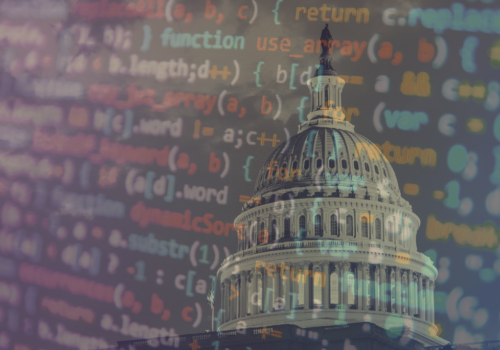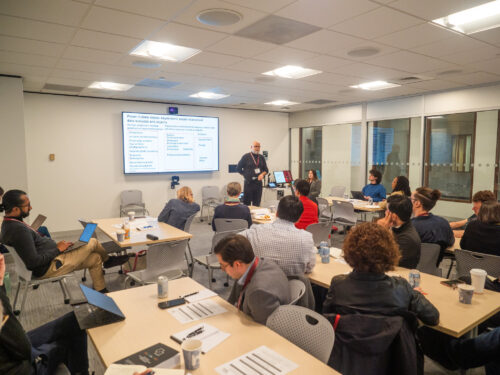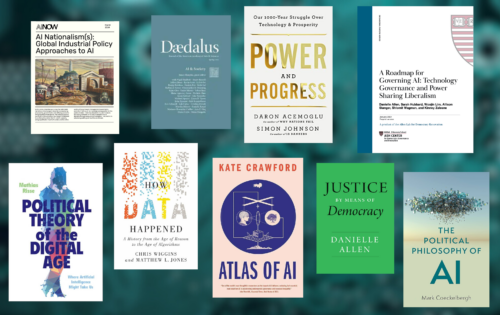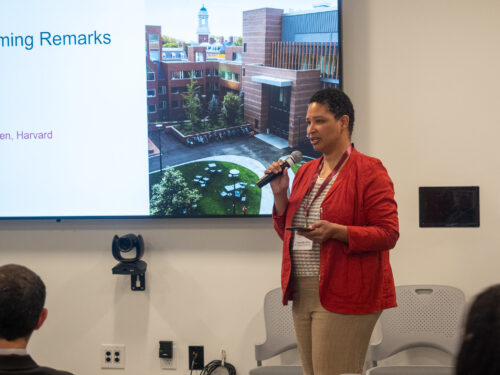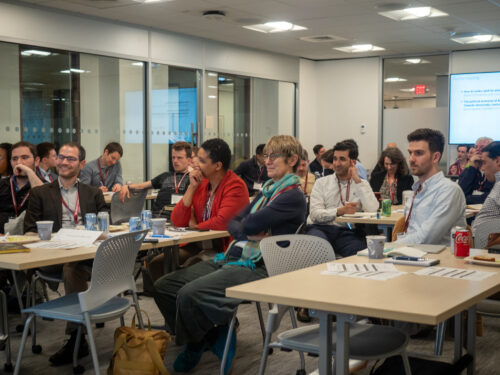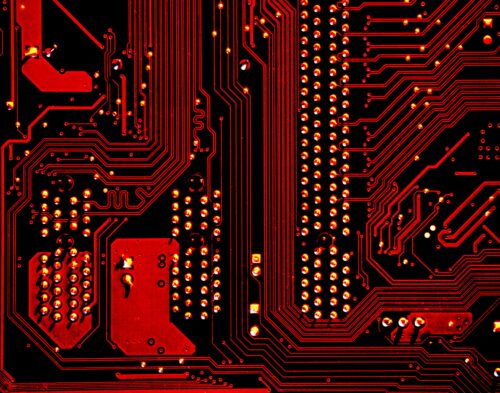
Danielle Allen
Professor of Public Policy, James Bryant Conant University Professor
Understanding the promises and perils that AI holds for the future of our democracy
Allen Lab for Democracy Renovation, Allen Lab: Technology & Democracy, Nonviolent Action Lab, Reimagining Democracy Program
The proliferation of artificial intelligence has the potential to upend our democracy — for better or worse.
AI tools could allow for new forms of participation while at the same time facilitating the spread of misinformation. As regulators and policymakers struggle to understand the implications of this new technology, Ash Center experts are answering questions about how best to govern AI and not just reactively respond to the many issues that continue to arise.
Can AI be a force for good in our democracy? How do we prevent it from becoming a tool for those who wish to undermine our institutions and trust?
Explore our latest events, research, and writing below.
Professor of Public Policy, James Bryant Conant University Professor
Director, Ash Center for Democratic Governance and Innovation;
Winthrop Laflin McCormack Professor of Citizenship and Self-Government
Adjunct Lecturer in Public Policy
Professor of the Practice of Public Policy, HKS;
Gordon McKay Professor of the Practice of Computer Science, SEAS
Commentary
Allen Lab for Democracy Renovation Senior Fellow Allison Stanger, in collaboration with Jaron Lanier and Audrey Tang, advocate for a “repeal and renew” approach to Section 230 in an effort to reform the current social media ecosystem.
Commentary
Allen Lab for Democracy Renovation Fellow Ami Fields-Meyer lays out research questions for developing a new U.S. tech policy agenda that puts people first.
Occasional Paper
Allen Lab for Democracy Renovation Fellow Alex Pascal and Vanderbilt Law Professor Ganesh Sitaraman make the case that public options for AI and public utility-style regulation of AI will enhance national security by ensuring innovation and competition, preventing abuses of power and conflicts of interest, and advancing public interest and national security goals.
Video
The “Building a Digital Democracy” panel brought together Audrey Tang, Megan Smith, Professor Danielle Allen, and Professor Mathias Risse for a conversation on how technology is being used to transform our political institutions.
Commentary
Allen Lab Senior Fellow, Allison Stanger, argues in the Journal of Free Speech Law that Section 230 is breaking the First Amendment.
Commentary
The GETTING-Plurality Research Network recently submitted a public comment on the NIST U.S. AI Safety Institute’s “Managing Misuse Risk for Dual-Use Foundation Models” draft guidance. The full text of the public comment can be found below.
Podcast
Check out the podcast episodes from the Allen Lab for Democracy Renovation’s Conference on the Political Economy of AI to glean insights from each panel.
Commentary
Will AI-assisted polls soon replace more traditional techniques?
Feature
This list, curated by the GETTING-Plurality Research Network at the Allen Lab for Democracy Renovation, highlights a mix of foundational texts and new thinking on the timely issue of how AI will impact democracy, especially as we head into election season.
Feature
Experts gathered at the Allen Lab conference to examine the incentives and structures of AI development, as well as to discuss the past, present, and potential future of steering AI towards better serving the public interest.
Feature
From misinformation to AI panic, experts joined the Allen Lab’s GETTING-Plurality event to discuss the threats the burgeoning technology poses to democracy.
Video
The GETTING-Plurality Research Network at the Ash Center’s Allen Lab and Connection Science at MIT Media Lab hosted a webinar event focused on “AI and the 2024 Elections”. In this session, we hear from Danielle Allen, Harvard University; Sandy Pentland, Massachusetts Institute of Technology; and Nate Persily, Stanford University. Each presenter gives a lightning talk, followed by audience Q&A.
Video
The Political Economy of AI Conference was convened by the GETTING-Plurality Research Network, a project of the Allen Lab for Democracy Renovation, housed at the Harvard Kennedy School’s Ash Center for Democratic Governance and Innovation.
Additional Resource
GETTING-Plurality Research Network members Allison Stanger and Woojin Lim, along with other authors, published “Terra Incognita: The Governance of Artificial Intelligence in Global Perspective” in the Annual Review of Political Science.
Commentary
Allen Lab Senior Fellow, Allison Stanger, provided testimony for The Subcommittee on Communications and Technology of the Committee on Energy and Commerce hearing on “Where Are We Now: Section 230 of the Communications Decency Act of 1996”.
